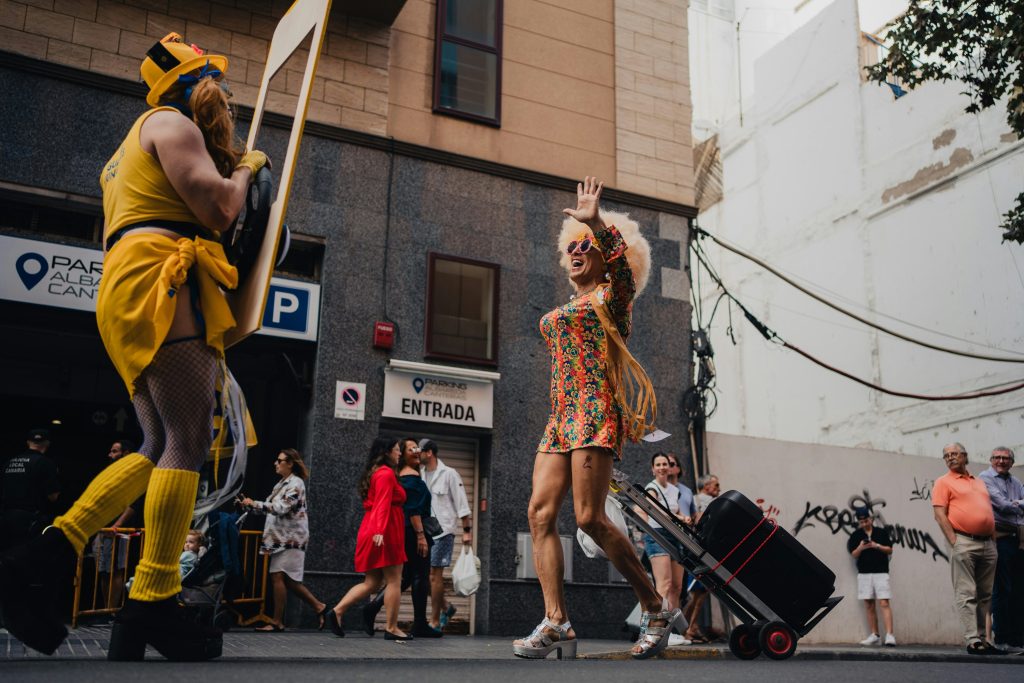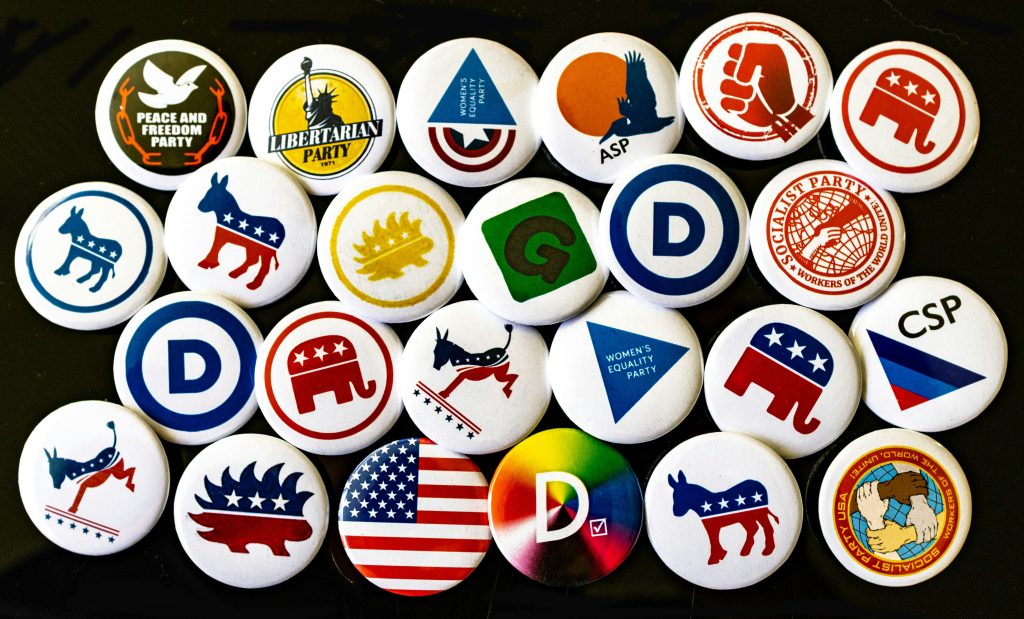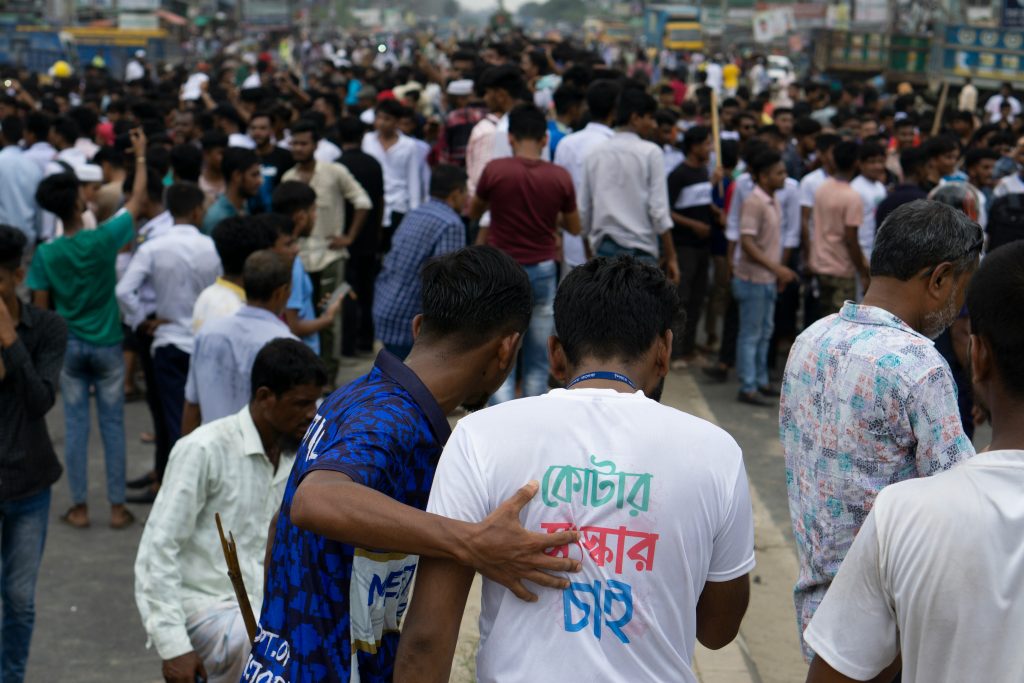A Night of Empowerment: Pink and The Chicks Shine at the Democratic National Convention
In a powerful display of music and unity, the Democratic National Convention in Chicago witnessed an electrifying performance by pop sensation Pink and her daughter, Willow Sage Hart, on the final night of the event. The duo took the stage to deliver an emotive rendition of Pink’s anthem ‘What About Us’, captivating the audience with their heartfelt message of resilience and hope.
As the convention reached its crescendo, Pink’s performance resonated with the values of the Democratic Party, which emphasizes inclusivity and social justice. The song’s lyrics, which speak to the call for change and the need for voices to be heard, echoed through the venue, stirring emotions among attendees and viewers alike. The presence of Willow on stage added a personal touch, showcasing the bond between mother and daughter while symbolizing the importance of youth involvement in political discourse.
The excitement didn’t stop there; country music trio The Chicks also graced the stage, further amplifying the night’s empowering atmosphere. Known for their bold stances and commitment to social issues, The Chicks delivered a performance that seamlessly complemented Pink’s, reinforcing the convention’s overarching themes of justice and equality. Their collaboration highlighted the unity among artists who are not afraid to use their platforms to advocate for change.
The final night of the Democratic National Convention was not just about political speeches; it was a celebration of art and activism. The performances by Pink and The Chicks served as a reminder of the role music plays in inspiring movements and galvanizing communities. As the crowd erupted in applause and cheers, it became clear that the intersection of music and politics continues to be a potent force for change.
As the event unfolded, the anticipation built towards the keynote speech by Vice President Kamala Harris, who was set to address the audience following these stirring performances. The combination of music and political discourse created an unforgettable atmosphere, energizing supporters and advocates alike. This night will be remembered not only for the impactful speeches but also for the artistic expressions that brought joy and motivation to the political arena.
The Democratic National Convention has always been a platform for voices to be amplified, and this year was no exception. The performances of Pink and The Chicks were a testament to the power of music as a medium for change, encouraging everyone to reflect on the importance of participating in democracy and advocating for the issues they care about.
As the convention wraps up, the impact of this night will undoubtedly linger, inspiring a new generation of activists and artists to continue the fight for a better future. With music as their ally, the message of unity, hope, and resilience will carry on beyond the walls of the convention center, urging all to remember that together, they can make a difference.
Tags: Activism, Democratic National Convention, Empowerment, music, Pink, social justice, The Chicks
House Minority Leader Hakeem Jeffries Energizes Democratic National Convention with Powerful Address
In a highly anticipated address at the Democratic National Convention, House Minority Leader Hakeem Jeffries captivated the audience with his powerful rhetoric and unwavering support for Vice President Kamala Harris. As the convention reached its pivotal third night, Jeffries took to the stage, channeling his Brooklyn roots to deliver a message of hope and resilience.
Speaking to a crowd eager for inspiration, Jeffries emphasized the importance of unity within the Democratic Party, urging attendees to rally behind Harris as the party’s candidate for a brighter future. “We are here to reclaim our narrative and ensure that our voices resonate from coast to coast,” he declared, his passionate delivery igniting the arena.
Jeffries, recognized for his sharp intellect and dynamic presence, used his platform not only to endorse Harris but also to highlight the pressing issues facing American families today. From economic challenges to social justice, his address echoed the sentiments of many who feel left behind in the current political landscape.
“Together, we can build a nation that works for everyone, not just the privileged few,” he asserted, calling for a collective effort to address systemic inequalities that have persisted for decades. His words struck a chord, particularly among younger attendees eager for change.
As he closed his speech, Jeffries reaffirmed his commitment to fighting for the rights of all Americans, urging his fellow Democrats to stay mobilized and engaged in the electoral process. “Let’s harness our energy and passion to ensure that we not only participate in democracy but lead it,” he concluded, leaving the audience energized and ready to take action.
The Democratic National Convention continues to serve as a platform for voices like Jeffries, who encapsulate the spirit of a party determined to champion progress and inclusivity. With leaders like him at the forefront, the future looks promising for those seeking transformative change in America.
Tags: Democratic National Convention, Hakeem Jeffries, Kamala Harris, Political Unity, social justice
Ella Emhoff Shines at Democratic National Convention 2024
As the Democratic National Convention unfolds in Chicago, the spotlight not only shines on the candidates but also on their families, especially the unique presence of Ella Emhoff, stepdaughter of Vice President Kamala Harris. Known for her bold fashion choices and commitment to social causes, Emhoff has become a notable figure in her own right.
On the second night of the convention, Ella was seen wearing a striking Thom Browne ensemble, drawing attention for her blend of high fashion and personal expression. Her choice of a designer suit, complemented by a trendy and unusual purse, showcased her distinctive style, which has garnered a following among fashion enthusiasts and political observers alike.
The presence of family members during such significant political events serves to humanize the candidates, and Ella’s participation has sparked discussions about the evolving roles of younger generations in politics. Critics argue that focusing on her aesthetic choices detracts from the serious issues at hand, but many fans appreciate her ability to merge her personal narrative with the larger political landscape.
Ella Emhoff’s visibility at the convention also highlights her commitment to social justice. In the past, she has used her platform as a fashion designer to advocate for marginalized communities, including Black trans individuals. This multifaceted approach is reflective of a younger generation that values authenticity and activism alongside traditional political engagement.
As the convention progresses, Ella’s presence is likely to continue to inspire conversations about the intersection of fashion, identity, and politics. Her ability to captivate an audience while supporting her family members underscores a significant shift in how we perceive political families and their influence on contemporary culture.
In a time when the political landscape is more polarized than ever, figures like Ella Emhoff represent a bridge between personal expression and public service, reminding us that politics is not just about policies; it’s also about the people behind those policies. As the Democratic National Convention continues, one can only anticipate how Ella will further engage with both the political sphere and her passion for fashion and social advocacy.
Tags: Democratic National Convention, Ella Emhoff, Fashion, social justice
A Legend Celebrated: Jesse Jackson’s Impact at the Democratic National Convention
In a heartfelt tribute at the Democratic National Convention, the Rev. Jesse Jackson Sr., a pivotal figure in the civil rights movement and a two-time presidential candidate, was honored for his lifelong dedication to social justice and equality. The 82-year-old activist received a warm welcome from delegates, who greeted him with a standing ovation, a testament to his enduring influence and the respect he commands within the Democratic Party.
Jackson’s legacy as a champion of civil rights is marked by his historic presidential campaigns in 1984 and 1988, where he broke barriers and brought issues of race and justice to the forefront of American politics. His presence at the convention served as a powerful reminder of the progress made and the work that still lies ahead in the ongoing fight for equality.
The convention’s opening session featured a video tribute that celebrated not only Jackson’s contributions but also those of other trailblazers like Shirley Chisholm, highlighting the importance of representation in political leadership. Prominent figures, including Bernie Sanders and Al Sharpton, took the stage to express their admiration for Jackson, acknowledging his unwavering commitment to uplifting marginalized communities and advocating for systemic change.
As Jackson stood before the audience, the atmosphere was electric with appreciation and gratitude for his years of hard work. His advocacy has shaped the Democratic Party’s platform on civil rights, and his influence can be seen in the party’s current focus on equality and justice.
Jackson’s impact extends beyond politics; he has been a beacon of hope for many, inspiring countless individuals to engage in activism and fight for their rights. His approach has always centered on empowerment, encouraging others to find their voices and participate in the democratic process.
The applause that filled the hall was not just for Jackson as an individual but for the ideals he represents—justice, equality, and an unwavering fight against oppression. His appearance at the DNC was a moment of reflection on the past and a call to action for the future.
As the convention progresses, the spirit of Jesse Jackson’s message resonates with attendees, reminding them of the importance of unity and collective action in the face of adversity. The celebration of his life and work is not merely a nostalgic look back but also a rallying cry for the ongoing struggle for civil rights.
In a time when division seems prevalent, Jesse Jackson’s legacy serves as a beacon of hope and resilience. His life’s work encourages the new generation of activists and leaders to carry the torch forward, fighting for a more just and equitable society for all. The Democratic National Convention stands as a critical platform for this message, emphasizing the party’s commitment to continue the fight for civil rights and social justice in the years to come.
Tags: civil rights, Jesse Jackson, social justice
Ashley Biden: A Personal Reflection on Family and Democracy
In a heartfelt address during the Democratic National Convention, Ashley Biden, the youngest daughter of President Joe Biden, offered a touching glimpse into the personal life of her father. She emphasized the profound love and support that defines their family, stating, “We don’t tell you enough that you are the love of our lives and the life of our love.” This declaration resonated deeply, showcasing not just the familial bond but also the emotional stakes at play as the nation approaches the pivotal 2024 presidential election.
Ashley Biden has carved out her own identity beyond being the daughter of a prominent political figure. With a background in social work, she previously worked for the Delaware Department of Services for Children, Youth and Their Families, before taking the helm at the Delaware Center for Justice. This experience has shaped her understanding of the challenges faced by vulnerable populations, and she has consistently advocated for social justice and reform.
During her speech, Ashley emphasized that the upcoming election is crucial for the preservation of democracy, freedom, and reproductive rights, framing it as “the fight of our lifetime.” Her words reflect the urgency felt by many as these fundamental issues come under threat. By sharing personal anecdotes about her father’s dedication to public service and family, she painted a picture of a man whose commitment extends beyond politics—a father who cares deeply about the future of his children and the nation.
As President Biden prepares to address the convention, Ashley’s introduction serves as a powerful reminder of the personal stakes involved in political life. The backdrop of the convention, a gathering of party members united for a common cause, amplifies the significance of her message. It’s a call to action for all citizens to engage in the democratic process.
Ashley Biden’s presence at the convention not only highlights her support for her father’s campaign but also underscores her own role in advocating for the issues she cares about. As she steps into the spotlight, she represents a new generation of leaders who are inspired to make a difference, embodying the hope and resilience that many Americans strive for today.
In conclusion, Ashley Biden’s poignant remarks serve as both a personal tribute to her father and a rallying cry for the values that underpin American democracy. As the nation gears up for the 2024 election, her voice will undoubtedly resonate in the hearts of many, inspiring them to champion the causes that matter most. This moment not only solidifies her position as an influential figure in her own right but also reaffirms the Biden family’s commitment to service and justice for all.
Tags: Ashley Biden, Democratic National Convention, Election 2024, Family Values, social justice
Colin Kaepernick Eyes NFL Comeback as Coaching Opportunities Arise
In a surprising turn of events, former NFL quarterback Colin Kaepernick has expressed his unwavering desire to return to the league, stating that he is ready to lead any NFL team that will have him. Despite being out of the game for over seven seasons, Kaepernick remains hopeful, showing his commitment to the sport through rigorous training sessions. He has not only kept his physical fitness in check but has also been vocal about his aspirations, even entertaining the thought of contributing to a team’s coaching staff.
Kaepernick, known for his controversial stance during the national anthem, where he famously took a knee to protest racial injustice, has maintained a presence in discussions around the NFL. His bold actions ignited a nationwide conversation about social issues and player rights, making him a polarizing yet significant figure in sports history.
Recently, Jim Harbaugh, coach of the Los Angeles Chargers and Kaepernick’s former coach during their time at the San Francisco 49ers, expressed interest in hiring Kaepernick as part of his coaching staff. However, Kaepernick has made it clear that his ultimate goal is to return to the field as a player. This declaration comes as a refreshing reminder of his enduring passion for the game and his determination to overcome the challenges that have kept him sidelined for so long.
The NFL community has witnessed a shift in attitudes over the years, and many fans and analysts are curious to see if Kaepernick’s return could be a possibility. The landscape of the league has changed, with various teams looking for fresh talent and leadership, and Kaepernick’s experience could serve as an asset. His Super Bowl appearance with the 49ers remains a highlight of his career, and the skills he showcased during that time have not diminished in his absence.
In recent interviews, Kaepernick has discussed the possibility of playing flag football, a growing sport that emphasizes skill and teamwork without the physicality of traditional football. This indicates his continued connection to the sport and desire to engage with it in various capacities, whether on the field or off.
As Kaepernick prepares for potential opportunities in the NFL, his journey remains emblematic of the intersection between sports and social justice. His story resonates with many aspiring athletes who aim to use their platforms for meaningful change. It also raises questions about the future of player activism and the role of the NFL in addressing these critical issues.
The conversation surrounding Kaepernick’s potential return serves as a reminder of the resilience and determination often seen in athletes. While the road to a comeback may be fraught with challenges, Kaepernick’s story inspires others to pursue their dreams relentlessly, regardless of the obstacles that lie ahead.
As the football season approaches, all eyes will be on Kaepernick and the possibilities that await. Whether he ends up on the field or in a coaching role, one thing is certain: his impact on the sport will continue to be felt, and his journey will be closely followed by fans and critics alike.
Tags: Coaching, Colin Kaepernick, comeback, NFL, social justice
Remembering Billy Bean: A Trailblazer for Diversity and Inclusion in Baseball
In a poignant moment for Major League Baseball (MLB), the league reflects on the impactful life of Billy Bean, who passed away at the age of 60. Bean’s remarkable journey began on the baseball diamond, where he made his mark as a player, but it was his courageous decision to come out as gay in 1999 that truly set him apart as a pioneer for diversity and inclusion in sports. As the second former MLB player to publicly identify as gay, Bean broke barriers in an era when such openness was rare and often met with hostility.
Born in Santa Ana, California, Bean’s love for baseball propelled him into a professional career that spanned the late 1980s and early 1990s. After his playing days, he transitioned to a role in MLB’s front office, where he became the Senior Vice President for Diversity, Equity, and Inclusion. In this capacity, Bean championed initiatives that aimed to foster a more inclusive environment within the sport, advocating for the acceptance of players from all backgrounds and identities.
Bean’s legacy is not only marked by his contributions to the game but also by his unwavering commitment to social justice. His work in promoting inclusion within baseball has inspired countless individuals, encouraging them to embrace their authentic selves. Through his leadership, he has opened doors for future generations of athletes, making it clear that diversity is not just a goal but a necessity for the growth and success of the sport.
As news of his passing reverberated through the baseball community, tributes poured in from players, executives, and fans alike, all acknowledging the profound impact Bean had on the game. His role as a mentor to many, particularly in the LGBTQ+ community, cannot be overstated. By sharing his own story, Bean provided hope and courage to those who may have felt isolated or marginalized within the world of sports.
The MLB community, including the Loyola Marymount University Athletics, expressed deep sorrow over the loss of Bean, honoring his contributions both on and off the field. His work not only changed the landscape of baseball but also set a precedent for other sports leagues to follow suit in their pursuit of equity and inclusion.
In remembering Billy Bean, we celebrate a life dedicated to breaking down barriers and advocating for a more inclusive future in sports. His legacy will undoubtedly influence the next generation of athletes, reminding them that their voices matter and that they have the power to instigate change. As baseball continues to evolve, Bean’s contributions will be a guiding light in the ongoing fight for equality and acceptance within the sport.
Billy Bean leaves behind a world that is a little bit more accepting, a little bit more inclusive, and, undoubtedly, a lot more aware of the importance of diversity. His story is a testament to the power of authenticity and the profound impact one individual can have on an entire community. As we reflect on his life and legacy, we are reminded that the journey towards inclusion is ongoing, and it is one that we must all commit to continuing. In this endeavor, we honor not only Billy Bean but also the countless individuals who strive for acceptance and equality in every facet of life.
Tags: Billy Bean, Diversity, Inclusion, LGBTQ+ Advocacy, social justice
Tensions Rise in Birmingham: Community Voices and Citizen Journalism Take Center Stage
In a gripping turn of events, the Birmingham riots have captured the attention of the public and media alike, unveiling a complex tapestry of community sentiments and the role of citizen journalism in modern activism. The unrest, which erupted in response to a series of escalating tensions within the community, has prompted a significant police response and raised critical questions about public safety and civil rights.
As the situation unfolded, a West Midlands Police officer found himself at the center of a unique interaction with a man who identified himself as a citizen journalist. This individual, equipped with a smartphone and a desire to document the unfolding events, livestreamed their conversation to a growing audience online. This moment underscored the power of social media as a tool for grassroots reporting and community engagement, as viewers from all walks of life tuned in to witness the events as they happened.
The presence of citizen journalists has become increasingly prominent in protests and riots around the world. By sharing real-time updates and perspectives, these individuals provide a counter-narrative to traditional media coverage, often reflecting the voices of those directly affected by the incidents. In Birmingham, the citizen journalist’s livestream not only captured the immediate atmosphere but also sparked a dialogue among viewers, who offered their opinions and support from afar.
As the riots continued, the community’s frustrations became palpable. Many residents expressed their feelings of discontent regarding local governance, social inequality, and perceived injustices. The streets of Birmingham turned into a battleground of ideas, where voices clamored for attention amidst the chaos. The riots, while a display of unrest, also revealed a deeper yearning for change and recognition.
The police response has been multifaceted, with efforts to maintain order while also addressing the concerns of the community. Law enforcement officials have faced criticism for their tactics, which some argue have exacerbated the situation rather than alleviating it. The dialogue between police and citizens is crucial in restoring trust and safety, and the presence of citizen journalists adds another layer to this intricate relationship.
As the events continue to unfold, it is clear that Birmingham is at a crossroads. The riots may serve as a catalyst for change, prompting discussions about social justice, community engagement, and the role of citizen journalism in shaping public discourse. The power of the people, amplified by technology, may lead to a new era of accountability and transparency in both governance and media.
In conclusion, the Birmingham riots have not only highlighted the tensions within the community but also the significant impact of citizen journalism in bringing these issues to light. As citizens take up the mantle of reporters, the line between observer and participant blurs, leading to a more engaged and informed populace. The call for change echoes through the streets of Birmingham, and as the community comes together to address the underlying issues, the dialogue must continue, both online and offline, to foster understanding and progress.
Tags: Birmingham, Birmingham riots, citizen journalism, community engagement, riots, social justice








